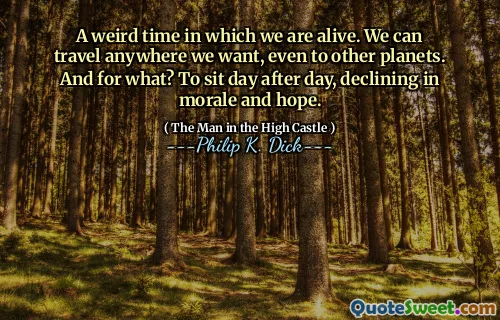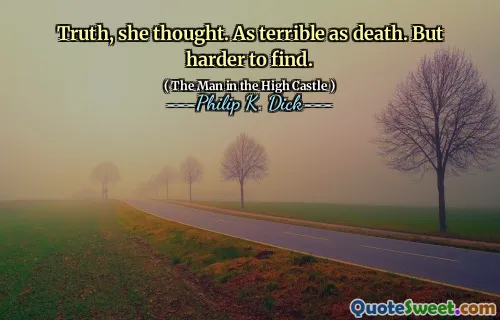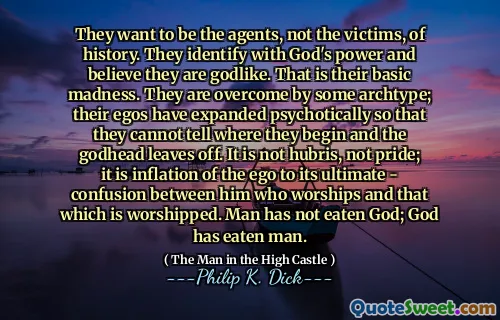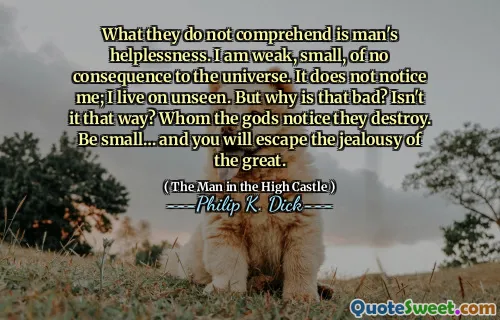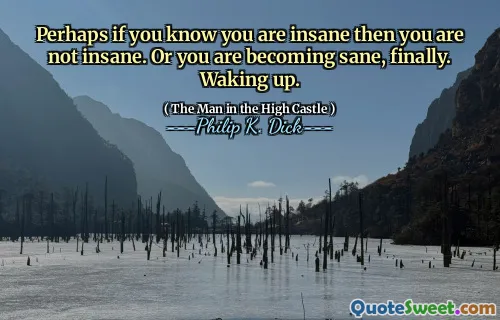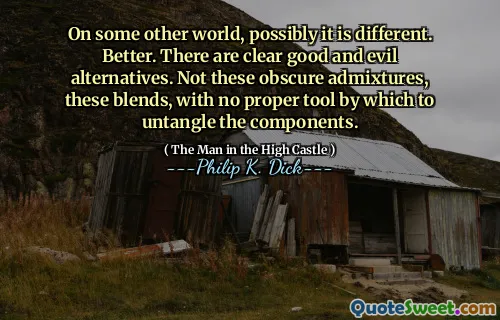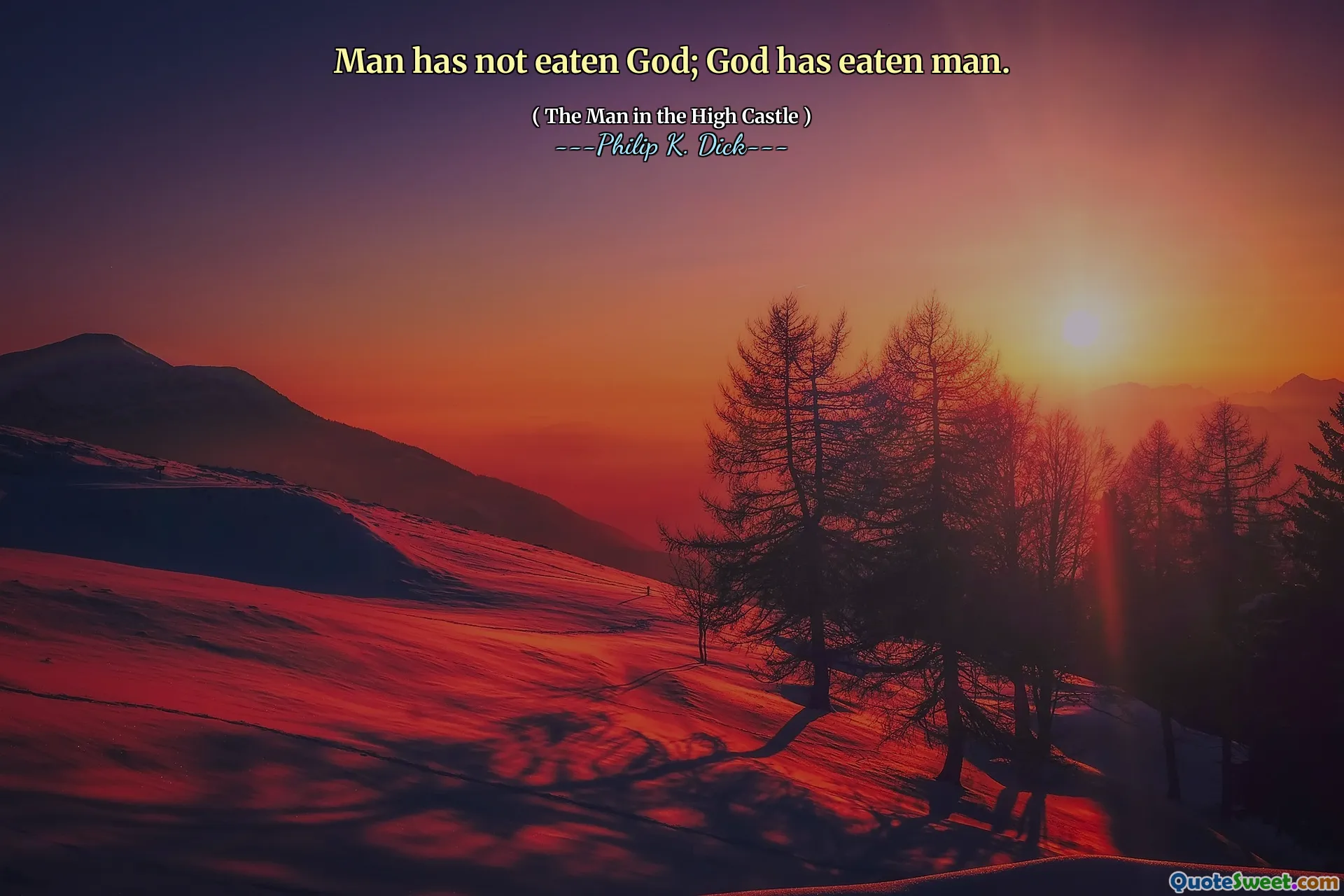
Man has not eaten God; God has eaten man.
The quote "Man has not eaten God; God has eaten man" from Philip K. Dick's novel "The Man in the High Castle" offers a profound reflection on the relationship between humanity and the divine. It suggests a reversal of the traditional notion in which humans seek to dominate or consume the divine. Instead, it implies that it is humanity that is ultimately consumed by higher powers or the forces of fate, indicating a sense of helplessness in the face of existential realities.
This idea can also be interpreted as a commentary on the nature of power and control. The 'God' in this context may represent the oppressive systems or ideologies that dominate human lives, consuming their potential and freedom. Dick's narrative often explores themes of reality, identity, and the impact of totalitarianism, making this quote a fitting encapsulation of these underlying messages in the book.
